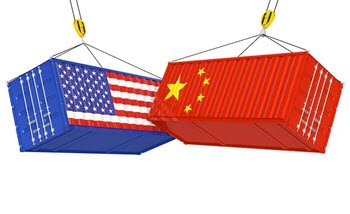Communicating importance of value-added products

Facing increasing pressure to quantify the value of export promotion efforts to investors, a U.S. industry organization retained WPI to develop a quantitative model that better communicated the importance of exports. The resulting model concluded that value-added meat exports contributed $0.45 cents per bushel to the price of corn, increasing support for that sector’s financial support of WPI’s client. In addition to serving the red meat industry with this type of analysis, WPI has generated similar deliverables for the U.S. soybean and poultry/egg industries.

 The CBOT saw another day of mixed trade with livestock futures pushing sharply lower as demand fears resurface while wheat futures drew back for a third straight day amid more forecasts of showers for previously dry production regions. The soy complex recovered a bit from Tuesday’s sellof...
The CBOT saw another day of mixed trade with livestock futures pushing sharply lower as demand fears resurface while wheat futures drew back for a third straight day amid more forecasts of showers for previously dry production regions. The soy complex recovered a bit from Tuesday’s sellof...
 Food is First Victim Food comprises just 6 percent of all U.S. exports, but it is the first to receive retaliation in trade disputes. The latest example is Israel’s war with Hamas, though it is American food brands that are taking it on the chin. KFC has had to close 100 outlets in Malays...
Food is First Victim Food comprises just 6 percent of all U.S. exports, but it is the first to receive retaliation in trade disputes. The latest example is Israel’s war with Hamas, though it is American food brands that are taking it on the chin. KFC has had to close 100 outlets in Malays...
 Bread is a critical basic food in Egypt and Russia has been a prime supplier. But Russian wheat prices have been rising, and now two shiploads of the commodity are delayed departing for Egypt. President Abdel Fattah al-Sisi has a tight grip over the military and the government, but war on the b...
Bread is a critical basic food in Egypt and Russia has been a prime supplier. But Russian wheat prices have been rising, and now two shiploads of the commodity are delayed departing for Egypt. President Abdel Fattah al-Sisi has a tight grip over the military and the government, but war on the b...